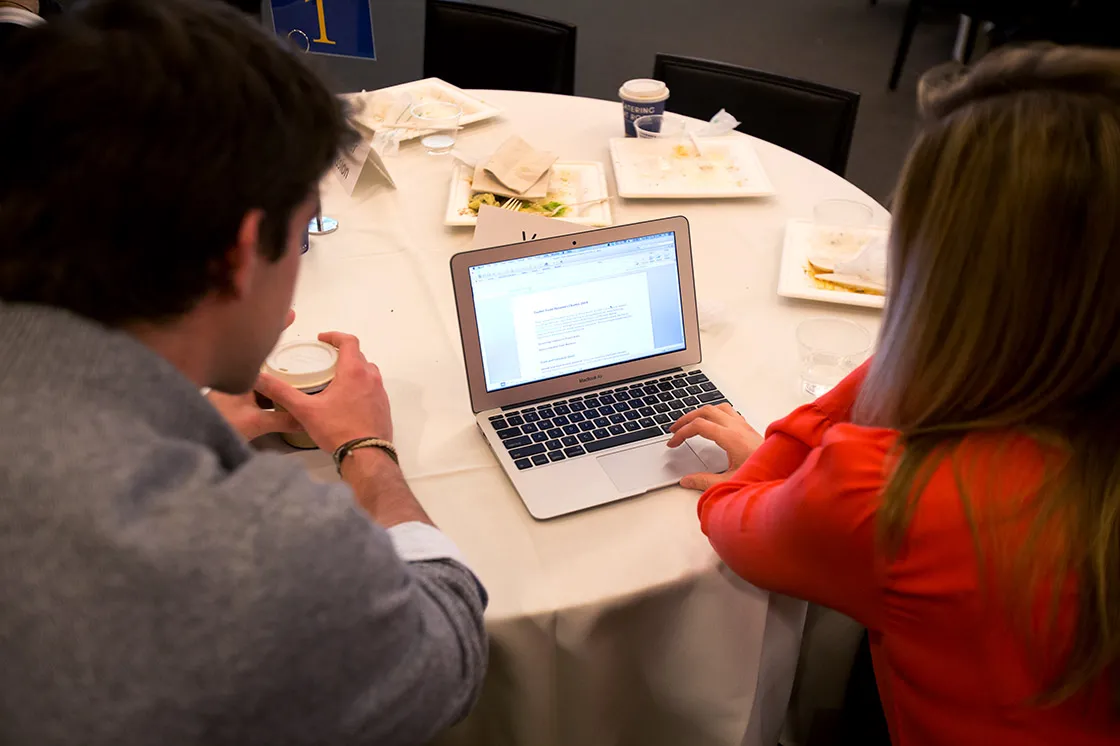
News
Welcome to Tauber Institute for Global Operations News.
Explore our press releases, feature articles, and announcements about Tauber students, speakers, team projects, and events.

Welcome to Tauber Institute for Global Operations News.
Explore our press releases, feature articles, and announcements about Tauber students, speakers, team projects, and events.

You’ve been asked to help plug the leaks and right the ship of a massive $130M merger with more moving – not to mention geographically disparate - parts than a fleet of Swiss watches, and it has to be done within 14 weeks. How do you keep your head above water?
Kevin Papak and Brittany Gutberg spent this past summer optimizing supply chain networks for Verizon, who earlier this year purchased Vodaphone’s 45% share in Verizon Wireless, thereby merging the two companies. Faced with one of the most challenging assignments of their careers, Papak and Gutberg quickly learned that in order to succeed, it was crucial that they support each other.
“They helped each other and made it a real team effort,” says Amitabh Sinha, a Ross School of Business advisor. “The tasks were sort of split up, each person doing slightly different things, but they were complimentary to each other. They did what was assigned to them while supporting the other person.”
Before the merger, Verizon worked with a different set of distribution centers than Verizon Wireless. To complicate matters even further, the majority of these centers were owned by different companies, and adhered to their own best practices, cost structures, and operating procedures. After the merger, nothing was lining up, performance was suffering, and Verizon was losing money.
Papak, who is pursuing a MSE in Industrial and Operations Engineering (IOE), and Gutberg, an MBA candidate in the Ross School of Business as well as pursing a MSE in IOE, were tasked with benchmarking these distribution centers against each other and identifying areas of improvement.
“The learning curve was steep,” says Sinha. “They had to deal with third parties, not internal employees, and they were going into something fairly technical. Understanding distribution center operations and the contracts behind them is something very few people can handle.”
Papak and Gutberg ended up saving the company an estimated $51M, but they faced some major challenges along the way. This was an extremely demanding project that put all of their skills to the test, and at times they would find themselves overwhelmed. That’s when they leaned on each other.
For example, while trying to create a more efficient ordering system between Verizon stores and the distribution centers, Papak was having trouble visualizing a key algorithm. Fortunately, Gutberg was there to lend a second pair of eyes. They got a conference room and traded ideas on a whiteboard. Soon Papak came up with a solution.
Papak and Gutberg turned to each other whenever they were struggling, and after the 14 weeks were up, their team work had paid off to the tune of multi-billion dollar savings and the accolades of Verizon’s senior leadership.
“During our final presentation, the Senior Vice President was already delegating tasks to others in the room in order to make sure our work got handed off to the right people,” says Papak. “All the feedback we received from our supervisors and the people we worked with was all very positive, and I'm convinced that we delivered something truly valuable.”
View photos from Spotlight! 2014
Written by: Joshua Kraus
About Tauber Institute for Global Operations
The Tauber Institute for Global Operations is a joint venture between the University of Michigan’s Stephen M. Ross School of Business and the College of Engineering, and 30 industry partners to facilitate cross-disciplinary education in global operations management. In addition to broad array of core and elective courses, the innovative LeadershipAdvantageSM program provides students with the tools to ascend to major operations leadership roles. Well-designed and managed team projects form the cornerstone of the Tauber Institute experience and allow students to apply their knowledge to real world settings. http://www.tauber.umich.edu
Contact:
Theresa Ceccarelli, 734-647-0308, [email protected]




